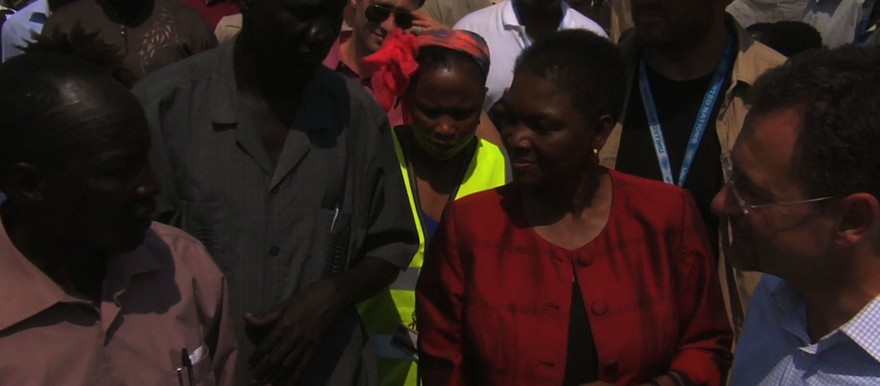The head of the United Nations’ aid programmes, Valerie Amos, says that people in the South Sudanese town Malakal are living in ‘dire circumstances’ as health needs continue to rise.
Her comments come after Doctors Without Borders warned on Monday of a growing disease burden in the country after the healthcare system ‘collapsed’ in many areas. MSF pointed out that many medical personnel ran away and many clinics and hospitals have not been resupplied.
Amos, the UN Under-Secretary-General for Humanitarian Affairs, described her recent visit to the disaster-struck area of Upper Nile State at a press conference in the South Sudanese capital Juba today.
“Yesterday I went to Malakal in Upper Nile State. I saw people in dire circumstances – short of food, living in conditions with poor sanitation and very little water. Children are not in schools and health needs continue to rise,” she said.
The aid official continued, “I met women who had walked for days to seek protection and assistance. Children who had been separated from their parents as they fled, and people who said that they had been targeted and abused because of their ethnicity or political affiliation.”
Amos said that she saw warehouses of WFP and IOM ion Malakal which had been looted. “There are tens of thousands of people in the town who need our help. Because of the looting we cannot help as many as we would wish,” she said.
The number of people displaced in Upper Nile State is nearly 150,000 according to figures released by the UN Coordination Agency yesterday, which is about 15% of the entire state population, according to 2008 census figures, with the most affected counties Malakal and its environs.
Finally, Amos also praised aid workers for their efforts to alleviate the humanitarian impact of the recent fighting: “I’m proud of the work of humanitarian organizations who remained during this tense and difficult period and delivered urgently needed humanitarian aid.”
Photo: UN Under-Secretary-General for Humanitarian Affairs Valerie Amos (in red) meeting people who fled conflict in Upper Nile, South Sudan (UN)




